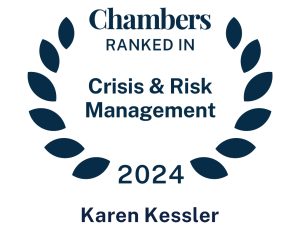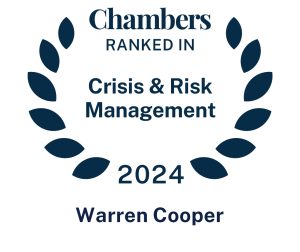Few emerging leaders are fully prepared to meet the challenges related to taking on an executive role for the first time. And it’s well-known that there’s a terribly short honeymoon before colleagues, direct reports and the rank-and-file begin judging harshly a new CEO or COO. Because the reputation of the company often reflects that of leadership, executives need to cultivate tools that will enable them to sustain the excellent reputation that led to their being elevated to the new position once they embody it.
Here are some tips for new executives to help to build or maintain the reputation they bring to the C-Suite table.
Self-awareness and mindfulness
Increasing self-awareness is a key goal. Coaching can reveal personal blind spots and broaden understanding of how one’s behavior affects others in the organization — and the organization itself. Becoming more mindful of our actions, and our impact on others, is the first step in gaining control over behaviors that reduce our effectiveness. Learn to hit “pause” before reacting.
How: Be present in the moment. Observe your thoughts and feelings without judgment. Be open to recognizing behavioral “triggers” and your habitual response patterns that impact feelings, thoughts and actions.
Communication style
It’s easy for leaders to overlook communication as a skill set until it doesn’t get the intended results. Examining one’s communication style to improve verbal and nonverbal skills can help create a more inclusive and supportive environment for one’s teams.
How: Plan the communication, set clear expectations, offer constructive feedback, be sensitive to the impact of nonverbal cues. Set the intention to take action, follow up, review, etc.
Listening skills
Developing good listening skills are critical. By embracing active listening skills and being attuned to others’ perspective and needs, leaders can learn to recognize opportunities for themselves and their teams.
How: Stay present, find the right time/place/frame of mind, avoid distractions, engage fully (body language is key), and if appropriate, take notes. Talk less, listen more (mirror, clarify, guide toward solutions).
Self-regulation
Day-to-day interactions with one’s direct reports impact their sense of belonging and inclusion, job satisfaction, and empowerment. Leaders who regulate their emotions can avoid clouding their own judgment and negatively affecting the work environment for others.
How: Learn to identify patterns and potential triggers to decrease their impact and initiate ways to step back, calm and re-engage more productively. Simply naming the emotion can help one better manage their responses to various situations.
Growth mindset
Adopting a growth mindset (as opposed to a fixed one) enables leaders to view obstacles as opportunities, not something to be dreaded or feared.
How: Be flexible, bounce back from setbacks, and think holistically and creatively. See challenges as opportunities for your team.
Cultivate empathy
Empathy enables leaders to recognize and acknowledge difficulties faced by their direct reports and helps them resolve conflicts and address challenging behaviors. Direct reports see empathic leaders as a safe place to speak their truth when they are feeling particularly stuck or challenged. It is not necessarily for the leader to solve the issue, but rather to look for understanding and ways to better support their employees in trying times.
How: Empathy grows out of efforts to increase self-awareness and mindfulness. Recognizing ourselves in others is a powerful tool in developing empathy.
Explore alternative project management strategies
Few direct reports (especially those new to the work or new to the manager) feel comfortable sharing that they don’t fully understand what’s asked of them, that they’re having difficulty with the work or encountered a stumbling block, that they are struggling to meet a deadline, or that they need help in any form. Anticipating difficulties helps to avoid them.
How: Effective leaders assume their direct reports will need additional direction, follow up and oversight to be successful. They detail the work to be done in writing, help the direct report develop a timetable that includes scheduled check-ins, set intermediate goals to keep projects on track – and generally stay on top of their progress to be ready to intervene proactively if/when things go awry.










